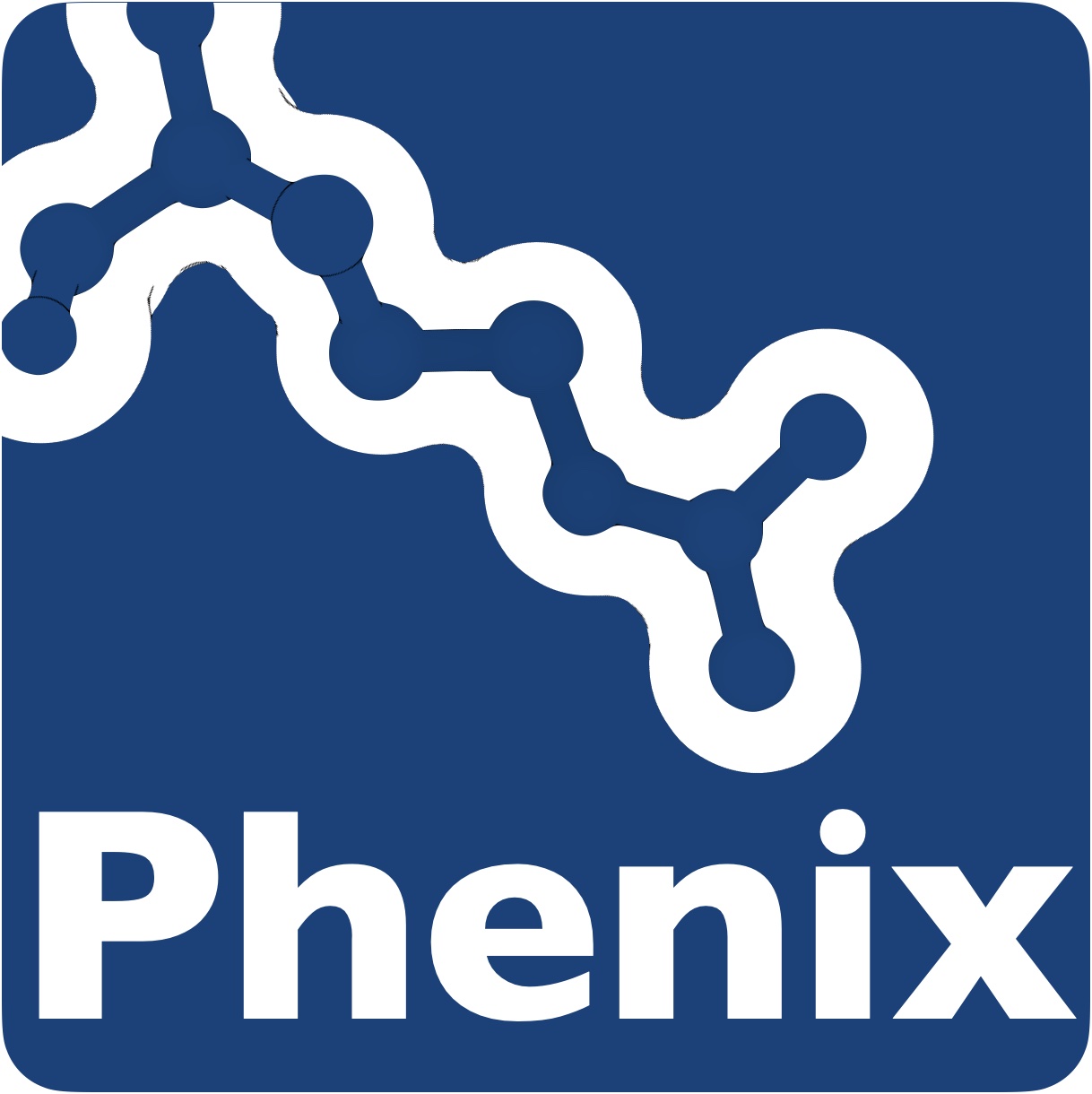Download and setup Phenix
Get the latest official Phenix release or the nightly development release with contributions from University of Cambridge, Duke University, the New Mexico Consortium, and LBNL, including the Phenix GUI.
1. Request a password
Academic users can obtain a password for downloading Phenix by providing their institutional email address.
Industrial users can obtain access via a user license by joining the Phenix Industrial Consortium.
2. Download
Get the latest official release or a nightly build. Nightly Phenix installers are build on all platforms and use the most current source code available; thre are recommended for users wanting the latest features and bug fixes. If you experience any problems using these builds, please contact us at [email protected].
3. Set up Phenix
You can install Phenix with a graphical installer or via the command line. Note that you can have several Phenix versions installed. Full instructions for the different operating systems and installation methods are here:
Installation instructions4. External programs
The Phenix graphical interface includes extensions for the molecular viewers Coot, PyMOL, and ChimeraX. There are also extensions for Rosetta and CryoFit. All the extensions are optional, but it is recommended to set up Coot, as it allows visualizing validation results. See the descriptions below for more detailed information.
Coot is the standard program for model-building into density. The extensions included with the Phenix GUI allow control of Coot from Phenix, including automatic loading of models and maps. This requires a build of Coot that includes a working Python interpreter; if the Phenix extensions are not functioning, this is almost certainly due to the lack of Python in the Coot build. Note: the installers available on the CCP4 web page have not worked with Phenix in the past; as of May 2011, the Mac installer appears to be fine, but you will need to specify the path (/Applications/coot.app) in the Phenix preferences.
-
For Linux:
We recommend downloading installers directly from Paul Emsley's web page. Any file with "python" in the name is suitable for use with Phenix. Most of these will work on other OSes than those named, but we haven't tested them extensively. -
For Mac:
Two options are available: use the Fink package manager, or download a standalone installation. Both are described on Bill Scott's web page. Note that you will need to be running Snow Leopard (OS 10.6) to use many of these, but some obsolete (but still functional) builds of Coot for older OSes are available. The builds are now nightly, and include both command-line and graphical installers. For older versions of Mac OS (10.4 or 10.5), the more recent packages do not work with Phenix, so you will need to use the obsolete Coot 0.6 build. -
For Windows:
You can get WinCoot binaries from Bernhard Lohkamp's website: WinCoot binaries. More info and an FAQ is here.
To run Coot from the Phenix GUI, you will either need to have the 'coot' executable somewhere in your shell's searchpath, or enter it in Preferences->Graphics->Full path to Coot. A few specific paths are searched automatically. On Mac, most installations should be automatically detected, but you may need to set the path explicitly to ensure that the correct version is used.
PyMOL is an open-source molecular graphics program maintained by Schrodinger. We distribute an obsolete binary build of PyMOL (version 0.99) with Phenix, but this is lacking some significant features and we recommend that you use the newest release. A variety of options are available for both Linux and Mac, including installation via some package managers (Fink, and some Linux distributions), custom installation from source, or proprietary builds (with additional features) purchased from Schrodinger. Either open-source or proprietary versions should work well with Phenix. (We mostly test with MacPyMOL version 1.2.)
As with Coot, you may have to point Phenix to the PyMOL executable (in Preferences->Graphics->Full path to PyMOL) if it is not found automatically. On Mac, it will use /Applications/MacPyMOL.app if present.
- phenix.erraser
- phenix.mr_rosetta
- phenix.simple_homology_model
- phenix.rosetta_refine
Once you have installed Rosetta you need to set the environmental variable $PHENIX_ROSETTA_PATH.
More detailed instructions can be found here.
Detailed installation instructions can be found here.
Obsolete Phenix releases
You may download older versions of Phenix here. These are provided for backwards compatibility and historical purposes only, and are completely unsupported. We strongly recommend using the latest official release (or a nightly build) if possible.
